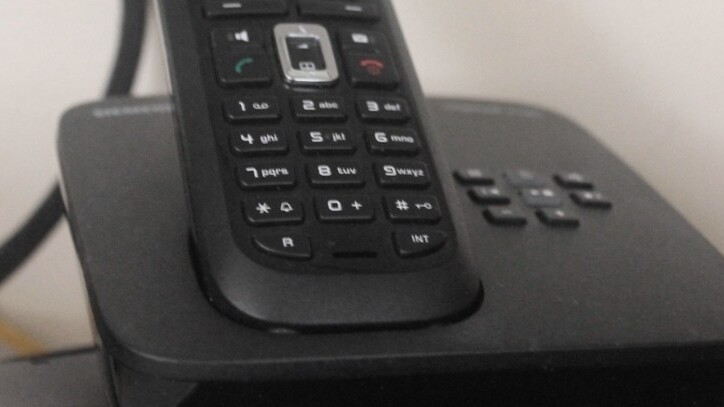
A survey released this week by ISPReview revealed that more than two-thirds of UK households would ditch their landline telephone if it wasn’t required for most Internet services.
Of course, this figure is hardly surprising. With the proliferation and affordability of smartphones, why would you give out anything other than your own personal mobile phone number that people can always contact you on? Certainly, whenever my home-phone rings I rarely answer it – because I know that it will either be a wrong number, or someone trying to sell me insurance.
Without a hint of exaggeration, I can’t remember the last time I had a conversation on my home-phone that didn’t end after 5 seconds with ‘thanks, but no thanks’. Come to think of it, I don’t even know what my home phone number is off the top of my head.
But as the ISPReview survey suggests, much of the country is tethered to their landline because of the need for access to the World Wide Web.
Copper to cable
The reason for this ‘tethering’ is because traditional ADSL connections require the copper phone-wires to make a connection.
But with the great shift away from copper to cable, things should – in theory – begin to change. As things stand, consumers really only have a handful of options if they want to enjoy Internet at home without a fixed-line phone connection.
Wireless dongle
One of these is to procure a portable wireless dongle with a mobile network data plan – this is fine for basic Web browsing tasks such as email, shopping on Amazon and so on. But if you’re looking to download the entire Star Wars back catalogue, well, you may be disappointed. That said, with 4G becoming more widespread, this should improve.
At the time of writing, EE – the first UK mobile network to launch on 4G – offers a range of monthly subscriptions for superfast wireless broadband. Prices range from £15.99 to £25.99 a month for 5GB-8GB worth of data. Plus, there’s a one-off payment of £69.99 to cover the cost of the Huawei E5776 dongle.
If you think 3G will suffice for your needs, you could check out GiffGaff which has contract-free Gigabag deals from £5 to £12.50 a month, which gets you from 500MB to 3GB worth of data. You will of course need to sort your own dongle out. If you’re happy to commit, then Three offers up to 15GB of data on a 24-month contract – this includes the price of the dongle.
High-speed cable
For now, the only real option to get proper landline-free home Internet is to go with Virgin Media, which is the main cable provider in the UK. It’s actually quite well hidden on the Virgin Media site which suggests the company is trying to shoehorn users onto bigger plans that include telephone – but if you look hard enough, you’ll find the broadband-only deals.
It costs between £22.50 and £35.00 a month depending on your desired ‘Up To’ broadband speed, though these prices are discounted for the first six months.

So if you’re looking to avoid a phone-line on an ‘Up To 60Mb’ broadband deal, you could basically save yourself about £7 a month. Not massive, but if you literally never use a landline, then the money’s better in your pocket, right?
The downside to this, however, is that cable isn’t available everywhere in the UK. Certainly, where I am in South London, I’m forced to use ADSL and therefore must subscribe to a landline.
Cable coverage is expanding though, so within a couple of years it should be reasonably easy to secure decent broadband without being forced to pay for a landline.
Satellite broadband
If wireless dongles are too slow for you, or you don’t live in a Virgin cable area and you really, really want to avoid paying for a landline, you could investigate satellite broadband.
Satellite broadband has typically proven popular in more remote areas where other options are limited but, well, there’s nothing stopping you from getting it in the centre of London.
AvonlineBroadband, for example, offers download and upload speeds of 20Mbps and 6Mbps respectively. Prices vary depending on the package – it ranges from £24.95 to £64.95 a month, which gets you from 10GB to an unlimited data allowance each month. There’s also hardware activation fees for the lower-end packages, in addition to installation fees.
Get the TNW newsletter
Get the most important tech news in your inbox each week.




